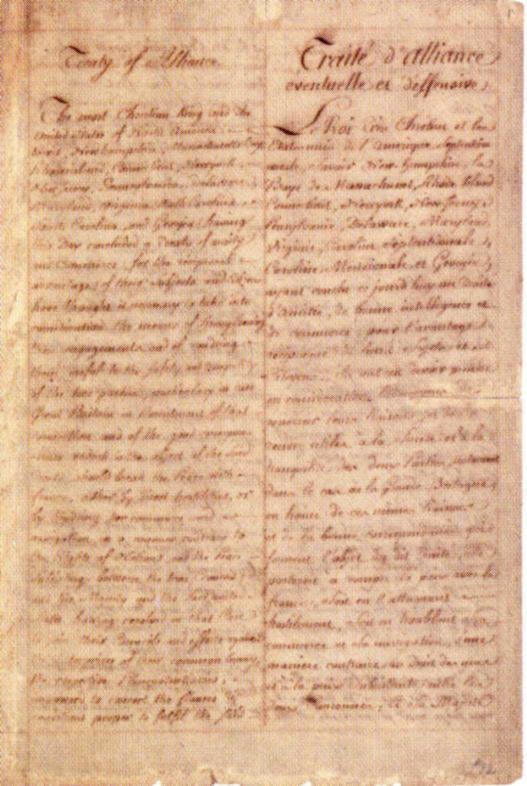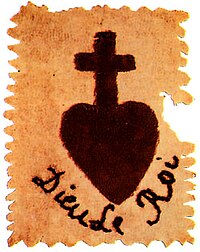Chapter 2
Ephraim Ben Raphael
Banned
/https://public-media.si-cdn.com/filer/32/82/32827c55-c567-4508-ae60-8fe37b647fc6/42-24017617-1.jpg)
Chapter 2
Artemas Ward was a profoundly different man than George Washington.
Where Washington was the first-born son of a southern aristocrat Ward was the sixth child of a middle class New Englander. Washington was a slave-owner and a career soldier, Ward flirted with teaching and later owned a small business. Washington was only grudgingly persuaded to become active in politics, while Ward felt called to public service and held a series of elected offices both before and after the Revolution, abandoning his political career only when his health forced him to. Both men were dedicated Patriots and sincere believers in the American Republic, both were popular with their troops and the fellow citizens of their nation. Artemas was more charismatic than the Virginian, Washington a superior general.
In this universe, with Washington dead to Patrick Ferguson’s bullet at the Battle of Brandywine, it is Artemas Ward who led America to victory in the Revolutionary War, gained the acclaim and adoration of the nation, and acquired the moniker “Father of the Country”. The cult of personality that made Washington uncomfortable was embraced by Ward and he needed little prompting to run in the first presidential election. While his victory was all but predetermined the Vice-Presidency was not, and a collection of different candidates sought the office- mostly southerners seeking to ensure that the South was represented in America’s first administration. Henry Lee III won a plurality, leaving the first Presidency geographically balanced between the Virginian Lee and the Massachusite Ward. The Constitution they operated under was almost identical to OTL, with only a few token differences and the absence of the 3/5ths clause- a victory by the southern states who wanted to count slaves to grant themselves greater representation in the House over northern states who didn’t want to count non-citizens at all so as to reduce southern representation. The capital also ended up remaining in New York (which served as a provisional capital OTL) as part of this deal, although a chunk of southern Manhattan was carved away from New York State to become alt-DC (roughly corresponding to what would have become the OTL Financial District).

Artemas Ward. Largely forgotten OTL, but Father of the Country in the Separate-verse.
Later Americans will attempt to attribute to Artemas Ward a variety of positions and attitudes that he did not actually hold, in particular he will be held up as some as an antislavery abolitionist despite his actual behavior. While neither a slave owner nor terribly racist, and while he was responsible for the Compromise of 1786 that preserved Georgia as a self-governing African America state, he had raised little objection to the post-war re-enslavement of the slaves of Patriot owners who had enlisted in the Continental Army without permission. Faced with a South that was deeply unhappy over the situation in Georgia and openly hostile towards petitions to outlaw slavery nationally (this happened OTL) he sought to calm the situation with concessions to the slave states. This included a strong version of the Fugitive Slave Act of 1793 and policies that banned slaves from enlisting in either state militias or the new US Army and made it impossible for new black immigrants to gain American citizenship.
To his credit however, Ward was a strong believer in universal male suffrage and openly campaigned against property qualifications for voting. Unlike Washington he traveled often across the country, visiting all of the thirteen states to encourage national unity and overseeing the incorporation of Vermont as the 14th state. Many of the same figures ended up in Ward’s cabinet as Washington’s albeit with some differences (Jefferson served as Attorney General, John Jay as Secretary of State) and he endorsed many of Hamilton’s financial suggestions (opposed as per OTL by Jefferson). There was a Bank of the United States and early efforts to develop national infrastructure. Most notably however, Ward departed from Washington’s policies in his decision to actively support France during the French Revolutionary Wars against Britain and refrained from issuing any version of Washington’s Proclamation of Neutrality.
Instead Ward permitted Citizen Genet to raise a pro-French militia in the United States and recruit Americans privateers to fight for France while continuing to repay America’s debt to France. This triggered to hostile actions by Britain against American shipping and saw a British policy of encouraging the Western Confederacy to attack American settlers pushing into the Northwest Territory. Ultimately tensions between the United States and the British Empire culminated in Ward’s decision to honor the Treaty of Alliance, drawing the United States into the French Revolutionary Wars in 1798. The war between America and Britain resembled a combination between the Northwest Indian War and the War of 1812, plus an ill-conceived American invasion of Florida. It would draw off British forces to the Canadas and the Caribbean who were deployed to Europe OTL, this (along with some very good French luck) resulted in a very different outcome to the French Revolutionary Wars.

If we'd stuck with this alliance instead of hanging France out to dry the way Washington and Hamilton had wanted... but I have no strong feelings on the matter.
I’m not going into too much detail into the alt-French Revolutionary Wars but butterflies saw a different series of events with OTL individuals playing different roles or no roles at all. Robespierre never rose to prominence, instead a shorter but no less intense La Terreur occurred under the leadership of Jean-Paul Marat followed by the rise of saner governments. Napoleon still gained prominence thanks to his leadership abilities that he leveraged to enter politics, but the circumstances that IOTL led to his assuming the title of Caesar and establishing a monarchy never occurred. Instead Napoleon ended up First Consul of a rather authoritarian French Republic (without the need for the OTL coup, it was a semi-voluntary reorganization of the Directorate), successfully led France to victories and launched invasions of Britain and Ireland. While the invasion of Britain was a rapid failure the invasion of Ireland prompted a general Irish uprising that was only suppressed with great difficulty and brutality (France tried to invade Ireland OTL and actually landed troops at one point).
The French Revolutionary Wars (no one calls them the Napoleonic Wars ITTL) ended in 1812 much more satisfactorily for France than OTL. Napoleon preserved the French Republic under his personal dominance (there were at least regular elections and a legal opposition, but no real chance of the First Consul ever actually losing) and Sister Republics in the Netherlands, Italy, and part of Germany. Italy and the alt-Confederation of the Rhine (a Republican affair ITTL) both “elected” Napoleon as their head of state and Spain ended up a client state of France under the shaky rule of Charles IV. While France gained different pieces of various neighbors one of their proudest achievements was the successful prying away of the Channel Islands from British rule.

Ah, Jean-Paul Marat. It's difficult to say whether he was actually crazier than Robespierre or not, but I've long cherished the impression that the pain-maddened newspaperman reached heights of madness the lawyer from Arras could only dream of.
For France the legacy of the Revolutionary Wars would be a vast (and overstretched) empire in Europe, the loss of most of its overseas colonies, and a dangerous sense of invincibility.
For Eastern Europe the legacy of the wars will be a continuing Holy Alliance of conservative powers against the liberal threat of France.
For Latin America the legacy of TTL’s Peninsular War would be the emergence of a collection of juntas controlling most of the different Spanish colonies and nominally loyal to the exiled King Ferdinand VII. As in OTL the Portuguese monarchy fled to Brazil, elevated the colony to the status of an equal kingdom, and opted to remain in Brazil even after the withdrawal of French forces from Portugal at the end of the war.
For America the legacy of the “Anglo-American War” would be one of defeat.
The Royal Navy dominated the Americans at sea while the British and their Native allies won victory after victory over the untrained and unprepared US Army in the Northwest Territory, the Canadas, and Spanish Florida. New York was burned from the sea, forcing the government to flee to Philadelphia, and a force out of Canada briefly occupied Boston before sacking the city and withdrawing. The American military was all but hopeless at this point IOTL and ITTL there is no reason why that should be any different. Canada was less populated than OTL but the British garrison no weaker, and it was swiftly reinforced by Britain once the war began. Ward’s second and last term (he died in 1800 both ITTL and OTL and declining health prevented him from running for a third) was badly embarrassed by American military failures, although the American people will opt after his death to put the blame on his generals. America under President Thomas Jefferson agreed to a humiliating peace with Great Britain in 1807 that dropped American claims to disputed territory between Maine and British North America and between Georgia and Spanish Florida. America’s sole consolations were the defeat of the Western Confederation and the withdrawal of British forts from the Northwest Territory (the US eventually got its act together well enough to win victories in those areas).
The attitude in America shifted to a grim sense of national unity tempered by a perception of military inferiority and a widespread fear that Britain’s distraction fighting France was the only thing that prevented a far worse conclusion to the war or even (according to some alarmists, this was never a real possibility) the reconquest of the United States and its forcible return to colonial status. Military experts will be imported from France to help America build up a strong, disciplined, professional armed forces. Both France and America noted the superior firepower of the Ferguson Rifle (whose success in the American Revolution prompted Britain to retain the expensive but otherwise quite effective weapon in general use for British marksmen) and America will eagerly study the advances of the Swiss-French gunsmith Jean Samuel Pauly whose inventions will not be ignored as they were OTL. The need of taxes to pay for this new military will be grudgingly accepted by voices otherwise resistant to such things, and the need for foreign allies- the Treaty of Alliance that Washington set aside in 1793 OTL will remain at least symbolically in effect for as long as France and the United States both continue to exist.
ITTL’s future historians will note Thomas Jefferson’s successful purchase of Louisiana as of the few successes of a generally dismal administration.
What’s that you say? There was another country that was profoundly influenced by the events of the French Revolutionary Wars? Well we’ll get Britain and her little colony in Africa next chapter.
Have no fear.

"Hey EBR, do you take constructive criticism on your post-French Revolutionary Wars Europeans borders?"
"No."






